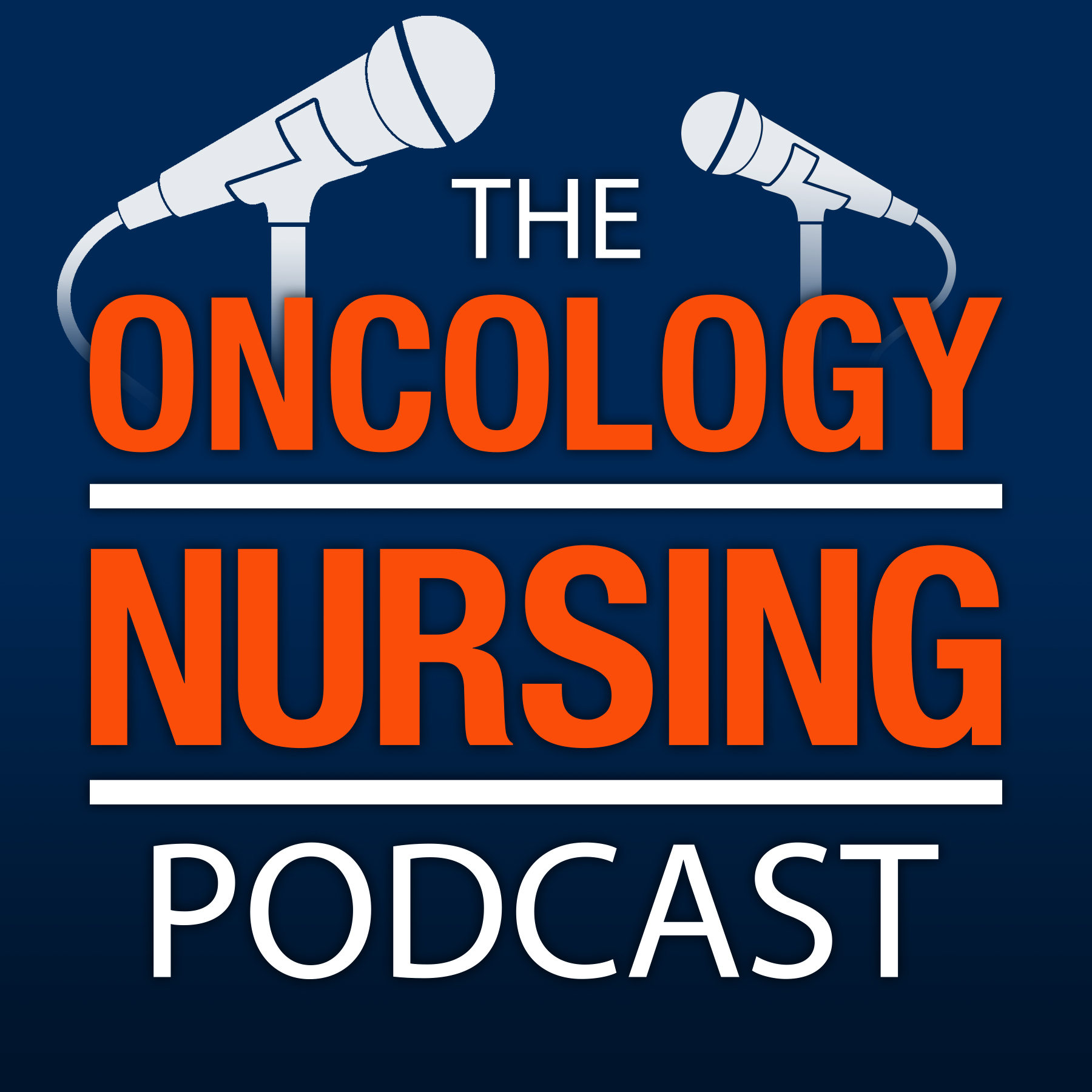Episode 306: Cancer Symptom Management Basics: CNS Toxicities
Description
“At the beginning, like when you first meet someone before they’ve even started anything, kind of get a baseline of ‘What’s your ability to complete your daily activities? How is your coordination? How’s your speech now? How is your writing ability?’ up front before we start anything that could be toxic. And then prior to every treatment, I tend to look at their gait, watch them walk in or walk out of the office, to see if they’re changing at all,” Colleen Erb, MSN, CRNP, ACNP-BC, AOCNP®, hematology and oncology nurse practitioner at Jefferson Health Asplundh Cancer Pavilion in Willow Grove, PA, told Lenise Taylor, MN, RN, AOCNS®, BMTCN®, oncology clinical specialist at ONS, during a conversation about central nervous system toxicity.
Music Credit: “Fireflies and Stardust” by Kevin MacLeod
Licensed under Creative Commons by Attribution 3.0
Earn 0.5 contact hours of nursing continuing professional development (NCPD) by listening to the full recording and completing an evaluation at myoutcomes.ons.org by April 5, 2026. The planners and faculty for this episode have no relevant financial relationships with ineligible companies to disclose. ONS is accredited as a provider of NCPD by the American Nurses Credentialing Center’s Commission on Accreditation.
Learning outcome: Learners will report an increase in knowledge related to CNS toxicities.
Episode Notes
Complete this evaluation for free NCPD. Oncology Nursing Podcast episodes: Episode 303: Cancer Symptom Management Basics: Ocular Toxicities Episode 290: Cancer Symptom Management Basics: Peripheral Neuropathy Episode 278: Cancer Symptom Management Basics: Hepatic Complications Episode 269: Cancer Symptom Management Basics: Gastrointestinal Complications Episode 256: Cancer Symptom Management Basics: Hematologic Complications Episode 250: Cancer Symptom Management Basics: Dermatologic Complications Episode 244: Cancer Symptom Management Basics: Cardiovascular Complications ONS Voice articles: Cognitive Impairment Is Much More Than “Chemo Brain” When Delirium Is Recognized and Addressed Early, Patient Outcomes Improve An Oncology Nurse’s Guide to Bispecific Antibodies CNS Survivorship Needs More Research, Funding, and Training, Expert Panel Says ONS courses: Essentials in Advanced Practice Symptom Management Treatment and Symptom Management—Oncology RN Nursing Considerations for CAR T-Cell Therapy for Patients With Hematologic Malignancies: Patient Education and Symptom Management ONS books: Chemotherapy and Immunotherapy Guidelines and Recommendations for Practice (second edition) Clinical Manual for the Oncology Advanced Practice Nurse (fourth edition) Core Curriculum for Oncology Nursing (seventh edition) Clinical Journal of Oncology Nursing articles: Associated Toxicities: Assessment and Management Related to CAR T-Cell Therapy Dronabinol Therapy: Central Nervous System Adverse Events in Adults With Primary Brain Tumors Primary Central Nervous System Lymphoma: Treatment and Nursing Management of Immunocompetent Patients ONS Huddle Card: Immune Effector Cell–Associated Neurotoxicity Syndrome (ICANS) American Society of Clinical Oncology (ASCO) Nervous System Side Effects Management of Immune-Related Adverse Events in Patients Treated With Chimeric Antigen Receptor T-Cell Therapy: ASCO Guideline To discuss the information in this episode with other oncology nurses, visit the ONS Communities.
To find resources for creating an ONS Podcast Club in your chapter or nursing community, visit the ONS Podcast Library.
To provide feedback or otherwise reach ONS about the podcast, email [email protected].
Highlights From This Episode
“Biotherapy, immunotherapy, and cellular therapy can cause changes in cognitive function and personality, even without other signs of obvious neurotoxicity. Things like cytokines, whether it’s infused or as a result of side effects, can bypass the blood-
More Episodes
“Under normal conditions, EGFR [epidermal growth factor receptor] is in an auto-inhibited state. And it’s only when it’s needed that it’s upregulated. But when you have cancers that there is either a mutation in the EGFR or an overexpression, what you see is a dysregulation of normal cellular...
Published 11/08/24
Published 11/08/24
Episode 335: Ultrasound-Guided IV Placement in the Oncology Setting
“Much like many experienced oncology nurses, I learned how to do IVs with palpation. I got really good at it. And so I thought, there’s no way I need this ultrasound. But we know now that our patients are sicker. There are...
Published 11/01/24


